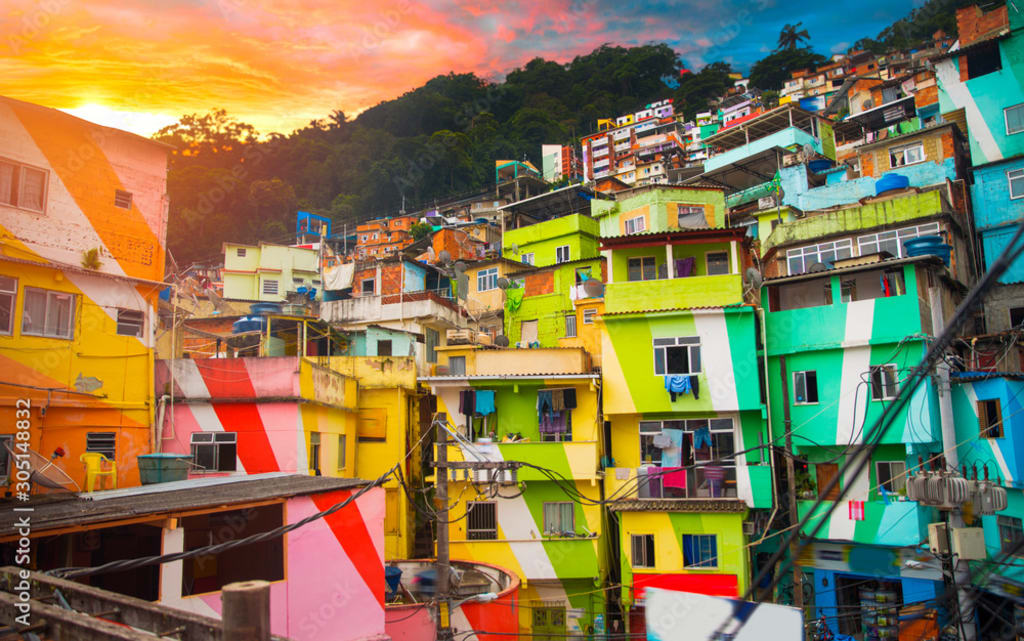In the vibrant heart of Brazil's favelas, a unique story unfolds
An intricate tapestry woven from the threads of resilience, innovation, and socio-economic dynamics.

At the center of this narrative lies a plant with a history both ancient and controversial: hemp, also known as cannabis sativa.
In the labyrinthine alleys and bustling squares of these tightly knit communities, hemp has played a multifaceted role, intertwining itself with the lives of the residents in unexpected ways. Despite the plant's global association with its psychoactive counterpart, marijuana, hemp holds a distinct identity as a versatile and eco-friendly resource.
Hemp's presence in the favelas began as a quiet undercurrent of necessity. With limited access to resources, creativity flourished as residents sought sustainable solutions to everyday challenges. Hemp emerged as a symbol of self-sufficiency, offering an array of applications—from textiles to construction materials, and even as a potential source of income through legal hemp products.
In the face of economic adversity, entrepreneurial spirits in the favelas recognized the potential of hemp-derived products. Small-scale workshops and artisanal enterprises sprang up, embracing the plant's fibers to craft garments, accessories, and home essentials. These endeavors empowered local artisans to harness their creativity and generate income within their communities.
However, the road to embracing hemp's potential was not without hurdles. In a nation where drug-related concerns have historically dominated discourse, the favelas navigated a precarious path between tapping into hemp's benefits and avoiding any associations with illicit substances. Education played a pivotal role in this delicate balancing act—raising awareness about the differences between industrial hemp and marijuana, thereby dispelling myths and misconceptions.
Community leaders, activists, and entrepreneurs initiated initiatives to educate their neighbors about hemp's diverse applications and the legal boundaries that defined its usage. These efforts fostered a collective understanding, enabling the favelas to engage with hemp in a way that aligned with legality and economic growth.
One remarkable facet of hemp's integration into the favela communities was its potential to address environmental concerns. Hemp's rapid growth and minimal need for pesticides positioned it as a sustainable alternative to other crops. As conversations about climate change and ecological preservation grew, so did the allure of hemp's environmental benefits. Residents recognized that by cultivating hemp, they were contributing not only to their economic prosperity but also to the welfare of the planet.
Over time, the favelas witnessed the emergence of community gardens where hemp was cultivated alongside other plants, fostering a sense of collective responsibility for sustainability. As the tall, green stalks swayed in the breeze, they became symbols of hope and progress—a testament to the favela's capacity to adapt and thrive in the face of adversity.
Furthermore, grassroots efforts to advocate for policy reform gained momentum. Collaborations between favela residents, NGOs, and governmental bodies sought to reevaluate the classification of hemp, emphasizing its potential for economic empowerment and environmental stewardship. These endeavors aimed to create a more conducive environment for hemp-related initiatives, nurturing a sense of optimism for a future where the plant could play an even more significant role in the favela landscape.
In the sun-drenched alleys and amidst the rhythmic beats of samba, the story of hemp in Brazil's favelas continues to evolve. It's a tale of transformation, where a plant once shrouded in controversy found its place as an emblem of resilience and innovation. With every woven thread, every sustainable product, and every shared lesson, the favelas showcase their ability to adapt, learn, and thrive—carving a unique narrative that speaks to the enduring spirit of these vibrant communities.
About the Creator
Kaue Santos
As a writer, Kaue Santos weaves narratives that transcend the page and captivate the imagination. Writer & Author / Artist
Donations:
PIX / [email protected]
Paypal / [email protected]






Comments
There are no comments for this story
Be the first to respond and start the conversation.